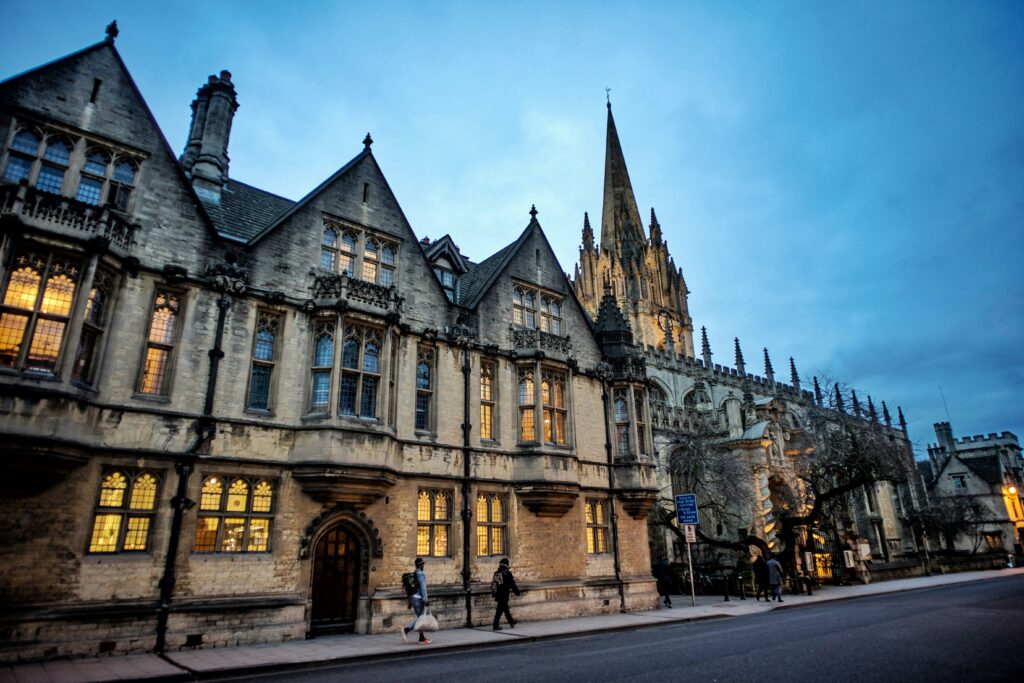Introduction to the Rowdy Oxford Lawsuit
The Rowdy Oxford lawsuit has become a hot topic, sparking conversations and debates both on campus and beyond. As the name suggests, it revolves around the lively college town of Oxford, known for its spirited atmosphere and vibrant student life. But this time, things have taken a serious turn. The legal proceedings surrounding this case are complex and multifaceted—drawing in various stakeholders and raising important questions about community standards, accountability, and the rights of students.
Whether you’re a resident of Oxford or an observer curious about what’s unfolding in college towns across America, understanding this lawsuit is crucial. What led to these legal battles? Who are the key players involved? And what implications could this case hold for other communities? Buckle up as we dive into every aspect of the Rowdy Oxford lawsuit—the facts, figures, and stories that make it so significant.
What is Rowdy Oxford Lawsuit?

The Rowdy Oxford lawsuit centers around a series of legal complaints against the popular nightlife district in Oxford, Mississippi. This area is known for its vibrant atmosphere and energetic college scene, drawing students from the nearby university.
At the heart of the lawsuit are allegations concerning public safety issues linked to overcrowding and inadequate regulation of bars and venues. Residents have voiced concerns about noise disturbances, property damage, and rising crime rates as a result of uncontrolled partying.
Community members argue that local authorities have failed to enforce existing laws effectively. Their frustrations have culminated in demands for change aimed at creating a safer environment for everyone involved. The outcome could reshape how nightlife is managed in college towns across the country.
History and Background of the Lawsuit
The Rowdy Oxford lawsuit traces its roots back to a growing concern among residents and local officials regarding noise, safety, and public disorder in the college town. Over recent years, as student populations surged, so did complaints about unruly behavior during weekends.
Tensions escalated when community leaders felt overwhelmed by rowdy gatherings. They argued that the vibrant nightlife did not come without consequences. Increased incidents of property damage and disturbances prompted action.
In response, several community members banded together to take on Rowdy Oxford establishments. Their mission was clear: advocate for stricter regulations that would protect both students and long-term residents from disruptive antics.
This legal battle marked a significant turning point for how college towns navigate the balance between youthful exuberance and community standards. The stage was set for an ongoing confrontation between tradition and modern challenges facing such vibrant locales.
Key Players Involved in the Case
The Rowdy Oxford lawsuit features several key players whose roles are crucial to the case.
At the forefront is the plaintiff, a group of local residents who argue that Rowdy Oxford has significantly disrupted their quality of life. Their experiences and grievances form the backbone of this legal challenge.
On the opposing side, Rowdy Oxford’s management team and their attorneys work diligently to defend against these claims. They assert that they operate within legal boundaries while fostering community engagement.
Local government officials also play an essential role in shaping public opinion and policy around such establishments. Their stance can influence both community sentiment and potential outcomes in court.
Advocacy groups supporting either side add another layer of complexity to this dynamic scenario. They aim to amplify voices either for or against nightlife culture in college towns like Oxford. Each player brings unique perspectives that shape this ongoing narrative.
Timeline of Events Leading to the Lawsuit
The Rowdy Oxford lawsuit didn’t happen overnight. It began with growing concerns about noise, safety, and community standards in the college town.
In early 2022, residents started to voice their frustrations during city council meetings. Reports of disruptive parties and unruly behavior became more frequent.
By mid-2022, local businesses noticed a decline in foot traffic due to ongoing disturbances. This led to an increase in complaints from both homeowners and shop owners alike.
As tensions escalated, advocacy groups formed to address these issues directly with university officials. Their demands for change gained traction within the community.
By late 2022, formal legal action was initiated against Rowdy Oxford entities as residents sought accountability for the chaos affecting their lives. The stage was set for a protracted legal battle that would engage lawyers and leaders on all sides moving forward.
Allegations against Rowdy Oxford
The allegations against Rowdy Oxford have sparked intense debate within the community. Critics claim that the establishment has fostered a culture of excessive partying and irresponsible behavior among students.
Concerns about noise disturbances, public intoxication, and safety hazards have emerged as focal points in this case. Many residents argue that the rowdy atmosphere disrupts their daily lives and poses risks to both locals and visitors.
Furthermore, there are accusations regarding inadequate measures taken by Rowdy Oxford to manage crowd control during peak times. This lack of oversight is said to contribute to an environment where lawlessness can thrive.
Some local business owners express frustration, believing that Rowdy Oxford’s practices tarnish the reputation of their college town. These claims underline a growing dissatisfaction with how nightlife is managed in areas heavily populated by students.
Impact on Community and Students
The Rowdy Oxford lawsuit has stirred significant conversations within the community. Residents are increasingly concerned about safety and quality of life. The allegations have opened a dialogue about responsible partying and neighborhood harmony.
Students, too, find themselves caught in the crossfire. For many, college years are marked by social experiences that define their youth. With heightened scrutiny on nightlife, students may face restrictions that alter their campus culture.
Local businesses feel the ripple effects as well. Bars and restaurants rely on student patronage but must balance compliance with local laws to avoid backlash. The tension between fun and responsibility is palpable among all parties involved.
This case serves as a reminder of how interconnected communities can be when addressing issues like public safety and student freedoms. Everyone feels its weight—students eager for excitement, residents seeking peace, and business owners navigating this evolving landscape.
Responses from Rowdy Oxford and its Representatives
Rowdy Oxford and its representatives have been vocal in addressing the allegations presented in the lawsuit. They maintain a firm stance, asserting that their operations comply with local laws and regulations.
In public statements, they emphasize their commitment to providing a safe environment for students and residents alike. Their representatives have pointed out various initiatives aimed at community engagement and safety protocols already in place.
Additionally, Rowdy Oxford has sought to clarify misconceptions surrounding certain events leading up to the lawsuit. They argue that many of the claims are based on isolated incidents rather than a systemic issue within their establishment.
Public relations efforts include interviews where management lays out their vision for responsible business practices. These responses aim not only to defend against legal complaints but also to reassure concerned citizens about their intentions moving forward.
Current Status of the Lawsuit

As of now, the Rowdy Oxford lawsuit is still unfolding in the courts. Legal proceedings have continued to gain attention, with numerous hearings scheduled over the past few months.
The plaintiffs remain steadfast in their claims, insisting that the situation warrants serious legal intervention. Conversely, Rowdy Oxford’s representatives are vigorously defending against these allegations. They assert that they operate within legal boundaries and claim no wrongdoing.
Recent developments suggest a growing interest from local media and community members alike. The public is keenly watching how this case will influence future policies regarding college-town establishments.
Both sides appear prepared for a lengthy battle ahead. As negotiations continue behind closed doors, it remains uncertain how soon a resolution might be reached or what impact it may have on similar cases across other college towns.
Possible Outcomes and Implications for Other College Towns
The Rowdy Oxford lawsuit could set a significant precedent for college towns nationwide. If the case results in a ruling against the establishment, it may prompt similar suits elsewhere. Communities might begin scrutinizing local businesses that contribute to noise and safety issues.
On the flip side, if Rowdy Oxford prevails, it could embolden other bars and restaurants to maintain their current practices without fear of legal repercussions. This would likely lead to an increase in complaints from residents about disturbances.
Furthermore, city officials might feel pressured to revise local ordinances governing nightlife and community engagement. The outcome will not only affect Rowdy Oxford but also how colleges balance student life with resident concerns across numerous campuses.
A ripple effect is possible; nearby towns may reconsider their regulations based on the court’s decision while searching for solutions that benefit both students and long-term residents alike.
Reflection on the Case and Lessons Learned
The Rowdy Oxford lawsuit serves as a wake-up call for college towns. It highlights the delicate balance between community dynamics and student behavior.
Local businesses, residents, and universities need to engage in constructive dialogue. Collaboration can lead to solutions that benefit everyone involved.
This case reveals the importance of accountability. Students must recognize their impact on surroundings while communities should create environments that foster responsible behavior.
Additionally, it emphasizes the role of law enforcement in maintaining peace without overreach. Clear communication about expectations is crucial to avoid misunderstandings.
Educational institutions may need to rethink their approach to student conduct policies. A proactive stance might prevent future disputes and promote harmony among all stakeholders involved in campus life.
Conclusion
The Rowdy Oxford lawsuit has shed light on a myriad of issues affecting college towns across the nation. This case, with its complex web of allegations and community impacts, serves as a crucial example for other municipalities grappling with similar challenges. The ongoing proceedings will undoubtedly shape future policies and regulations concerning student life and community dynamics.
As the situation unfolds, it remains essential to stay informed about developments in this landmark case. The ripple effects could influence not only local governance but also how universities interact with surrounding communities. It’s important for stakeholders—students, residents, university officials to engage in conversations that foster understanding and collaboration.
Legal battles like these remind us that every action has consequences. They challenge us to consider our responsibilities within our communities while addressing grievances constructively. Whether you’re directly involved or simply an observer, the lessons learned from the Rowdy Oxford lawsuit are worth contemplating as we navigate the complexities of modern college-town life.


